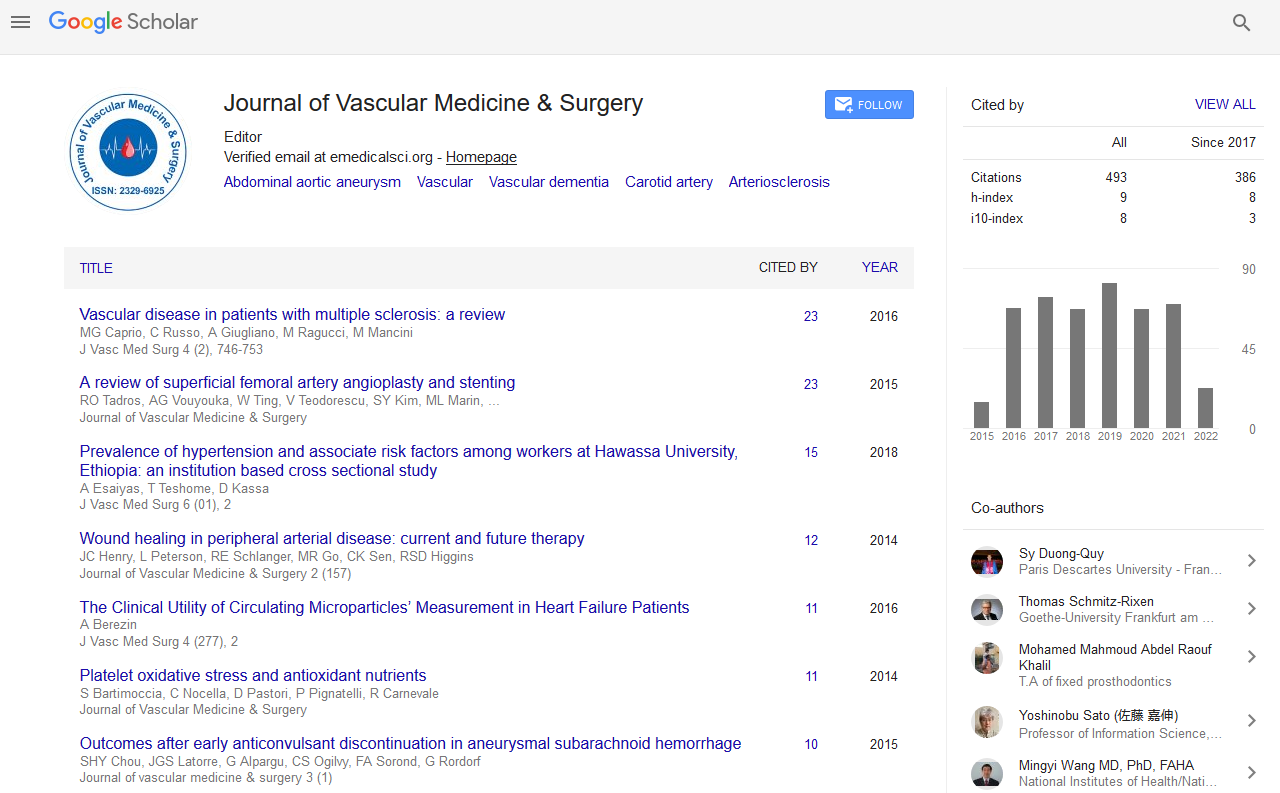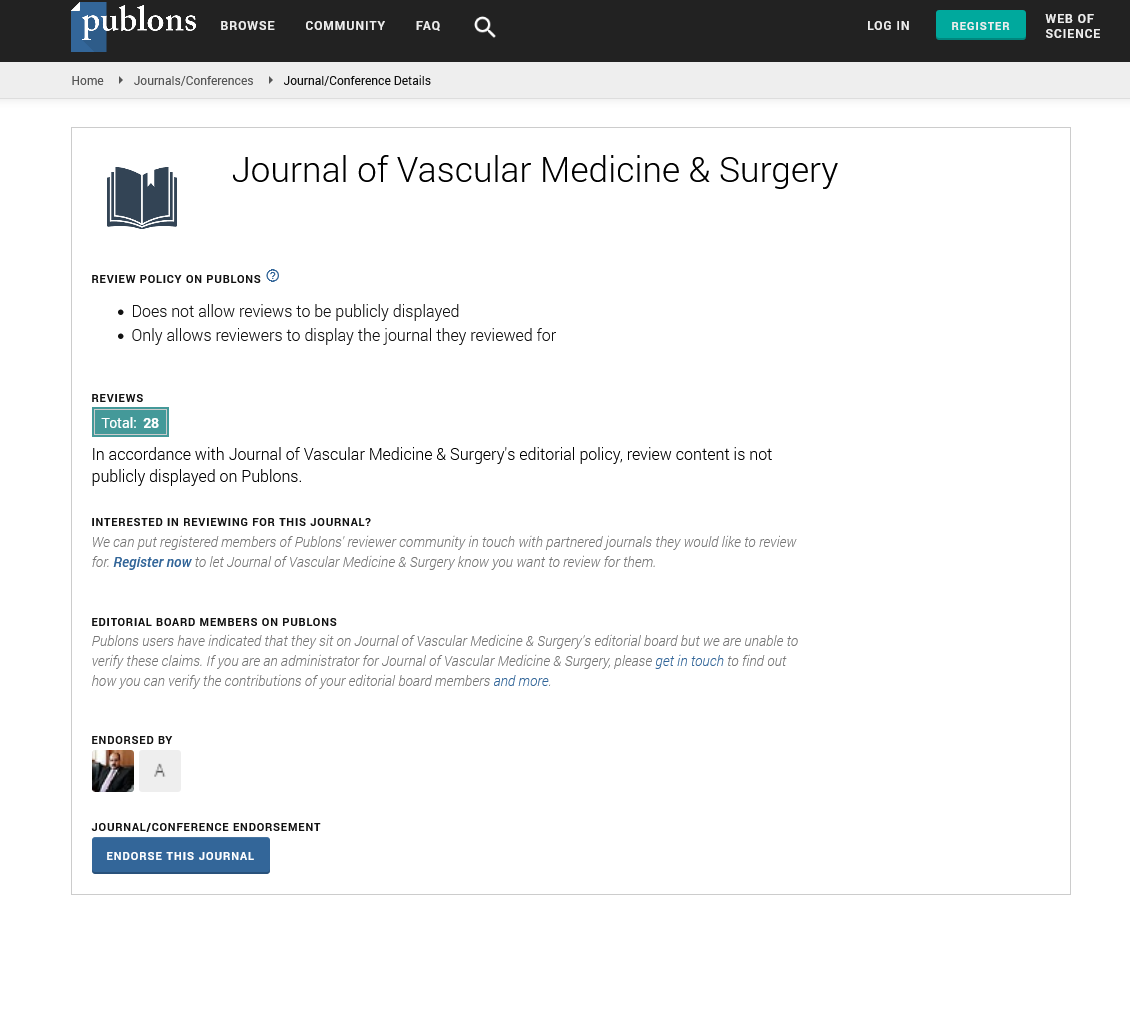Indexed In
- Open J Gate
- Academic Keys
- RefSeek
- Hamdard University
- EBSCO A-Z
- OCLC- WorldCat
- Publons
- Euro Pub
- Google Scholar
Useful Links
Share This Page
Journal Flyer

Open Access Journals
- Agri and Aquaculture
- Biochemistry
- Bioinformatics & Systems Biology
- Business & Management
- Chemistry
- Clinical Sciences
- Engineering
- Food & Nutrition
- General Science
- Genetics & Molecular Biology
- Immunology & Microbiology
- Medical Sciences
- Neuroscience & Psychology
- Nursing & Health Care
- Pharmaceutical Sciences
Abstract
The Risk Factors of Myocardial Infraction after Aortic Valve Replacement: A Systematic Review and Meta-Analysis
Wan Chin Hsieh, Po Lin Chen, Lubor Golán, Brandon Michael Henry, Chung Dann Kan, Mohamed Omara and Jaroslav Lindner
Background: Myocardial infarction (MI) is a frequent perioperative complication of transcatheter aortic valve replacement (TAVR) associated with significant morbidity and mortality in comparison to surgical aortic valve replacement (SAVR).
Objectives: This meta-analysis aims to assess the periprocedural incidence of MI, along with its risk factors in adult patients undergoing TAVR and SAVR due to severe aortic stenosis.
Methods: A systematic literature review of the major electronic databases was performed to identify relevant articles published from January 2007 to September 2017. A meta-analysis was performed to quantify the incidence and prognostic factors for periprocedural MI following TAVR via “Review Manager (REVMAN) 5.3 Copenhagen”.
Results: A total of 32 studies with a combined cohort of 15961 patients undergoing TAVR were included in this meta-analysis. Using a fixed-effects model, it was found that the TAVR procedure may lead to significantly low risk of myocardial infarction as compared to the SAVR (0.5% vs. 1.1%; RR, 0.44; 95% CI, 0.25-0.75; P=0.003; I2 =0%) The incidence and extent of periprocedural MI further to TAVR have been found associated with both short- and long-term mortality (p=0.002 and p=0.003, respectively).
Conclusions: Incidence of MI was associated with lower risk of TAVR compared to SAVR. However, further studies are warranted to assess the role of CK-MB and troponin, as a prognostic factor to predict the clinical outcome. This study provides an evidence-based analysis on risk factors that could help predict the incidence of perioperative myocardial infarction in patients with severe aortic stenosis undergoing TAVR in comparison with SAVR.


